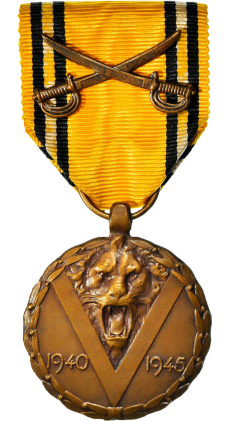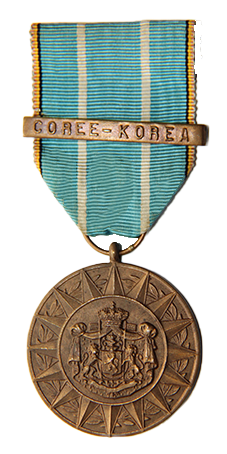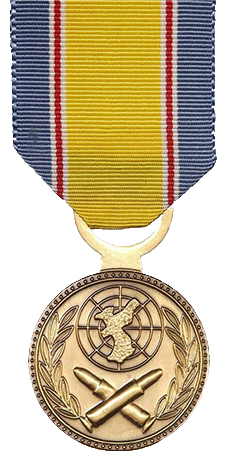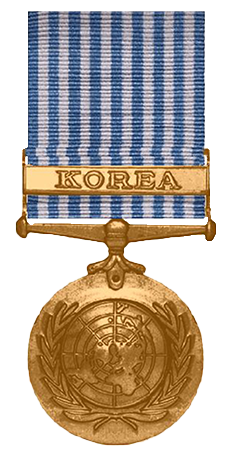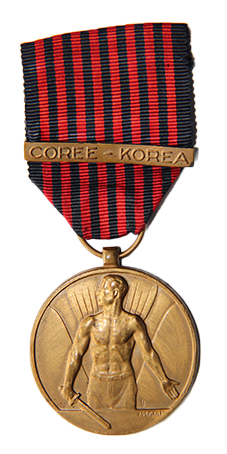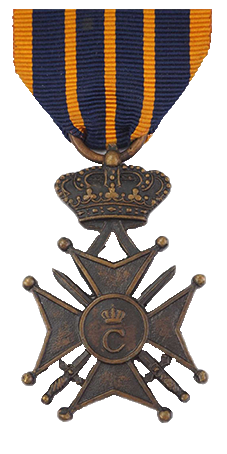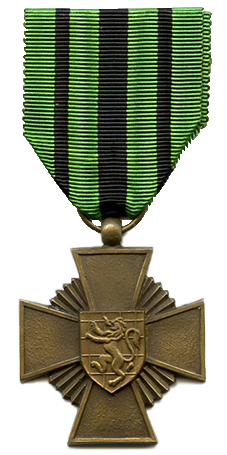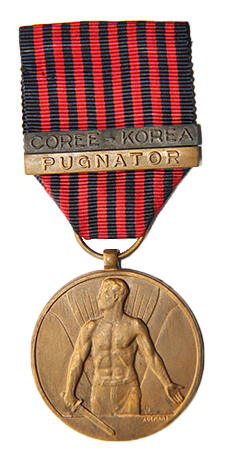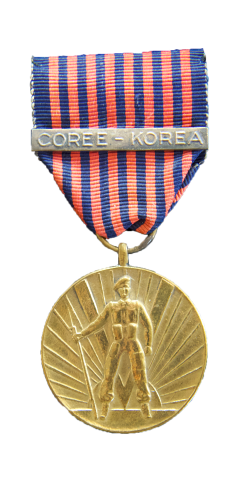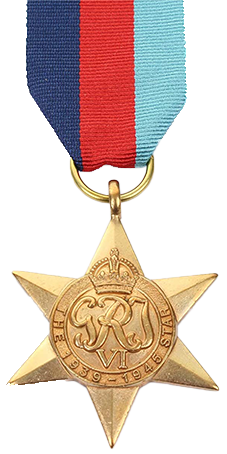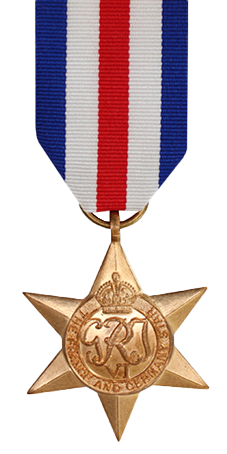


MÜLLER, Robert

Birthday: 08.02.1917, Esch/Alzette
Father: Robert MÜLLER
Mother: Cathérine SCHREINER
Service entry: 04.10.1946
Contingent: 1st
Ranks: Sergent-Chef (1946/1949)
Adjudant (1946/1951)
Adjudant-Chef (1964)
Adjudant-Major (1979)
Death: 13.01.1994, Steinfort
From 1930 to 1935, Robert worked in different charcuteries and bakeries until he became a day laborer for the Société des Chemins de Fer Luxembourgeois (CFL). In 1936, he went off to study navigation at the Antwerp Maritime Academy. As a certified chef, he joined the Compagnie Maritime Belge (C.M.B.) and worked as a cook on four different ships. Later, he supervised the control of naval cargo.
At the time when tensions in Europe were on the rise and war seemed inevitable, Robert returned home to Luxembourg. Despite his respiratory problems, the after-effects of a malaria infection contracted during a trip to the Belgian Congo, he became a miner for ARBED in 1940. During the Nazi occupation of Luxembourg, he became a known suspect to the Gestapo and the SD. Due to subversive actions and his affiliation to the resistance organisation L.V.L., the Germans were closing in on him, making him flee the country to France on the night of 13 July 1941.
Arriving on the demarcation line, separating Vichy France from occupied France, he was stopped by the police, giving him a choice between being pushed back to Luxembourg, joining the Légion étrangère, or spending time in jail. He chose to join the Légion étrangère in Marseille, spending the next two and a half years in Northern Africa. Stationed in Alger, he and his comrades of the 1er régiment étranger fought German troops in the campaigns of Algeria and Morocco. Subsequently, he set over to Great Britain where on 11 November 1943, he joined the Belgian battery in the British Army. On personal request, the Luxembourgish government in exile granted him an unpaid leave, allowing him to enlist at the Special Air Service School, where he graduated as a parachutist with laudable grades at the end of August 1944. Thereafter, he became part of the U.S. Special Troops ETOUSA at the Office of Strategic Services (O.S.S.). His extensive sabotage and transmission skills were brought to good use during recon missions behind enemy lines. One of the operations, which he ran with two other Luxembourgish soldiers fighting for the allied forces, was known under the promising title "Chaos Mission". In early February 1945, the combatants were dropped into France and driven up to the front lines to infiltrate hostile areas and to spy on enemy movements. Following the "Chaos Mission", all three were recommended for the Bronze Star Medal, although it was never actually awarded to them.
For his outstanding services during the liberation of Europe, the Luxembourgish government promoted him Lieutenant on 6 April 1945.
After the war’s end, he was officially demobilized on 2 June 1945, and therefore lost his military rank as a lieutenant. Henceforth, he became a special commissioner for the interception of war criminals. Already in September 1944, after Luxembourg’s first liberation, Justice Minister Victor Bodson had bestowed special powers on Robert to seek out war criminals. Zooming in on Damian Kratzenberg, the main Luxembourgish collaborator and leader of the pro-Nazi movement V.D.B., he once again used his notable recon skills. In September 1945, his commission succeeded in catching Kratzenberg in the German Mainland, in Weissenberg, where he had gone into hiding. Kratzenberg was imprisoned in Bregenz, where he was transferred to the Grund prison in Luxembourg City on 19 September 1945.
After a short occupation as a health controller to the regional health insurance fund, Robert reenlisted in the newly established Luxembourgish Army. On 4 October 1945, he was appointed Adjudant by ministerial resolution, and soon joined the IInd Battalion near Nittel, in the French occupation zone in Germany.
After North Korean troops crossed the 38th parallel and invaded South Korea on 25 June 1950, Robert volunteered immediately to be part of the Luxembourgish military contribution to the UN forces. During the Battle of the Imjin River in late April 1951, he personally contributed to the successful outcome of the battle. Holding firm against the overwhelming number of Chinese soldiers, his platoon covered the retreat of the 3rd American Infantry division, so they could reequip and reestablish favourable positions on the other side of the Imjin River. Robert returned to Luxembourg on 30 September 1951. A month later he regained his former rank (Adjudant) on account of his merits on the battlefield.
Unlike many of his Korean comrades, he stayed de facto in the military until 6 February 1970, even though he had already been detached to different administrations since December 1967. After his retirement, the military granted him the honorable title of Adjudant-Chef.
"(…)Jamais en défense et un sens tactique remarquable. Quelqu’un sur qui ses chefs peuvent compter dans les moments de crise."
Captain A.E.M. (Adjoint d'état-major) Williot H., commanding officer of the A company of the first Belgo-Luxembourgish batallion, about Müller on his conduct report from 17.8.1951. © Armée luxembourgeoise
